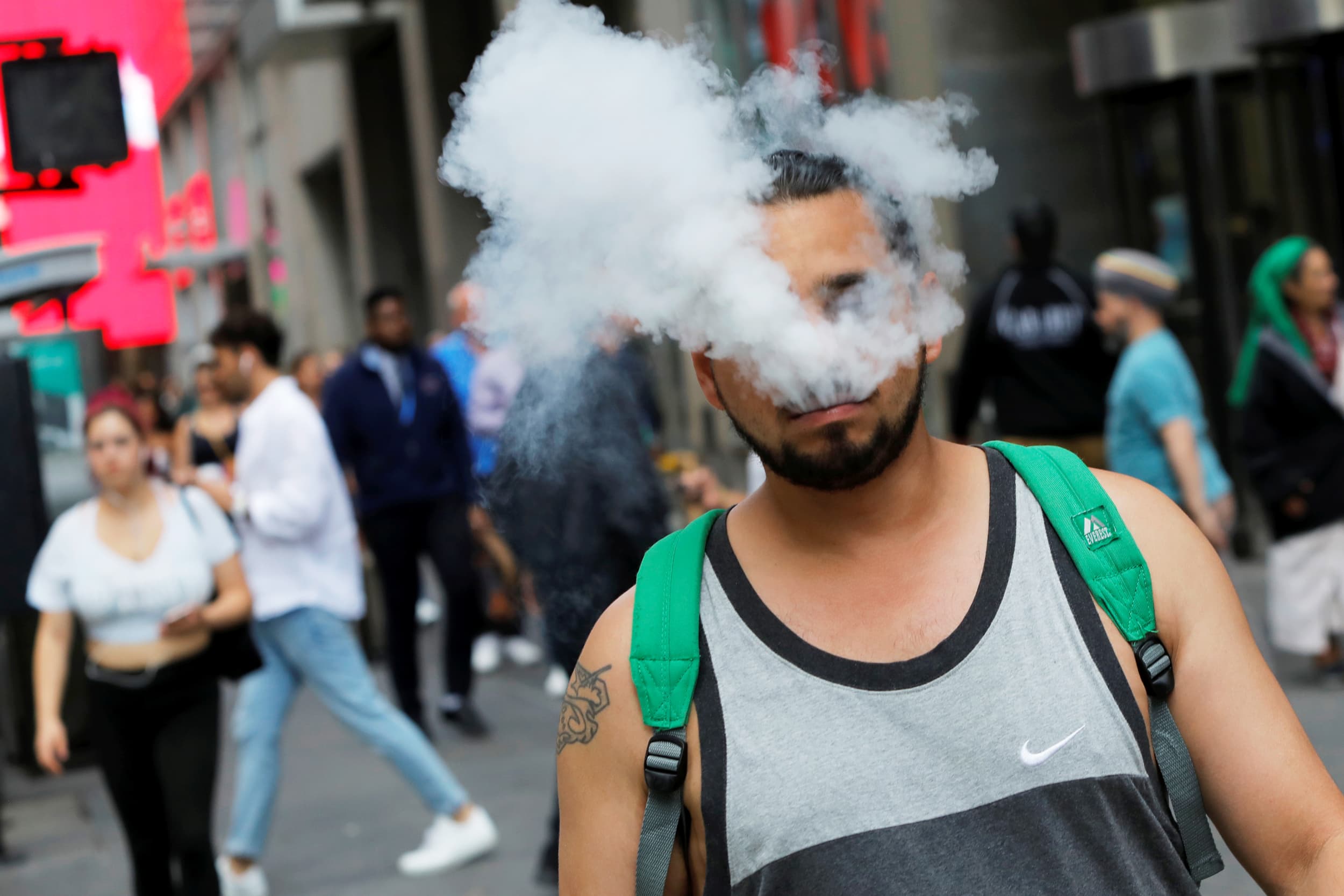Vaping-related lung illnesses climb to 530 cases, seven deaths as CDC hunts for a cause

A man uses a vape as he walks on Broadway in New York City, September 9, 2019.
Andrew Kelly | Reuters
An outbreak of a deadly vaping-related lung disease has sickened 530 people — mostly young men — and killed seven, federal health officials said Thursday, adding that investigators still haven't found a cause.
The number of people who have fallen sick so far has dramatically risen from 380 patients identified last week, officials from the Centers for Disease Control and Prevention told reporters on a conference call Thursday. Patients have been found across 38 states and one territory, they said.
Health officials shared few details on what exactly is making people sick and are broadly encouraging people to avoid vaping amid their investigation. Lawmakers will press CDC officials for answers in two hearings on the Hill next week.
More than half of the people who have fallen ill are younger than 25, with 16% of all the patients younger than 18, CDC principal deputy director Anne Schuchat said, and three-quarters of the patients are male.
She urged people to give up e-cigarettes and other vaping products while the CDC investigates the cause.
"Until we know more, if you are concerned about specific health risks, CDC recommends you do not use e-cigarettes or vaping products," Schuchat said.
Health officials are struggling to figure out what's making people sick. Some patients are reluctant to disclose what they were vaping, especially THC, which is illegal in most states. People are using an array of products and no one product, brand or substance has been linked to all the cases.
"I'd like to stress how challenging this situation is, as patients may have been exposed to a variety of products and substances, may not know the contents or sources of these products, and in some instances may be reluctant or too ill to disclose all the details of interest," Schuchat said.
Most patients report vaping THC, the compound that produces a high in marijuana, Schuchat said. Many say they vape THC and nicotine, the addictive chemical used in e-cigarettes. Some of the patients, however, were only vaping nicotine, she said.
"That's why our work includes collecting critical details about the products or substances involved, where they were purchased and how they were being used," Mitch Zeller, director of the Food and Drug Administration's Center for Tobacco Products, said on the call.
The FDA is analyzing more than 150 samples for the presence of a broad range of substances, including nicotine, THC, other cannabinoids, cutting agents, opioids, toxins and poisons, Zeller said.
The FDA's Office of Criminal Investigations has formally opened its own probe looking at what is making people sick and what is happening in the supply chain, Zeller said. The office is not pursuing any persecutions of personal use of any controlled substances in these cases, he said.
Officials in New York state and elsewhere initially suspected vitamin E acetate, which was found in many of the vaping devices used by patients, as a possible cause. But Zeller said it hasn't been found in every case.
"Our laboratory analysis continues to show a mix of results," he said. "There's no one compound, ingredient, constituent, including Vitamin E acetate that is showing up in all of the samples tested, and I'll just need to leave it at that more general level."
Zeller said it's "premature" to say what regulatory actions the FDA might take amid an ongoing investigation that has "way more questions than answers" at this point.
"When we're in a better position to answer that question we will," he said.
No comments